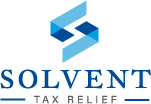If you are facing collection actions, including liens on your property or a levy on your bank account or wages, it can feel overwhelming. Many taxpayers don’t know where to begin in finding relief from collections from the IRS. Through collection appeals, you can appeal or dispute the collection actions. In some cases, the IRS might agree to avoid unwarranted collection action. During a collection appeal program hearing, a taxpayer and their professional tax representative can ask for a review of the IRS’s decisions. In some cases, the IRS may make a decision that can release you from liens or levies. A collection appeal program request must be done in a specific period of time. In order to get the best results from your collection appeal program hearing, reach out to a professional tax relief service.
At Solvent Tax Relief, we offer tax resolution services to help those who are facing various collection actions. Reach out to our team at 800.985.9426 to learn more about collection appeals and your rights.
What Is a Collection Appeal?
 A collection appeal is one method that your tax professional might use to help relieve you from the stress of a levy or alien. The collection appeal program is offered by the IRS as a way for taxpayers to appeal collection actions. The IRS also offers the collections due process as another method to appeal liens or levies. One important thing to know about the collection appeals program is that taxpayers can make an appeal before or after collection actions.
A collection appeal is one method that your tax professional might use to help relieve you from the stress of a levy or alien. The collection appeal program is offered by the IRS as a way for taxpayers to appeal collection actions. The IRS also offers the collections due process as another method to appeal liens or levies. One important thing to know about the collection appeals program is that taxpayers can make an appeal before or after collection actions.
The types of things that a taxpayer can appeal in a collection appeal hearing include the following:
- A levy or seizure of an asset
- A lien on a property
- Rejection of or change to an installment agreement
One thing that taxpayers cannot appeal in these hearings is their underlying tax liability, also known as their tax debt. They can only challenge collection actions made by the IRS.
Why File a Collections Appeal?
Once you file a collection appeal, in most cases, the IRS will immediately stop collection actions, including placing a hold on any potential levies or liens. Also, collection appeal requests are reviewed quickly. You may be able to stop collection actions if you can prove that a lien or levy will create an economic hardship or that an installment agreement could help you pay off your tax debt more quickly.
How Solvent Tax Relief Can Help
As a taxpayer, you have collection appeal rights. Once you receive a notice that the IRS intends to place a lien on a property or a levy on a bank account, a collection appeal request is one action you can take before the lien or levy is issued. These appeals can buy you time and provide some relief from collection actions.
However, making an appeal can be complicated. Before you can have an appeal hearing, you’re generally required to try to resolve the issue with a collections manager. If you cannot reach an agreement, then you have two days to file a collections appeal program request.
Solvent Tax Relief can represent you in dealings with the IRS. We will gather all the necessary information and file your appeal request by the due date. For the best outcome, reach out to our tax professionals.
Contact Solvent Tax Relief Today
In addition to assisting with collection appeals, Solvent Tax Relief can provide all the following services:
- Tax consultation services
- Tax negotiation services
- Audit representation
- Tax preparation services
- Tax settlement services
Don’t let the threat of collection actions hold you back. Learn more about your rights for collection appeals and contact Solvent Tax Relief at 800.985.9426 today.
